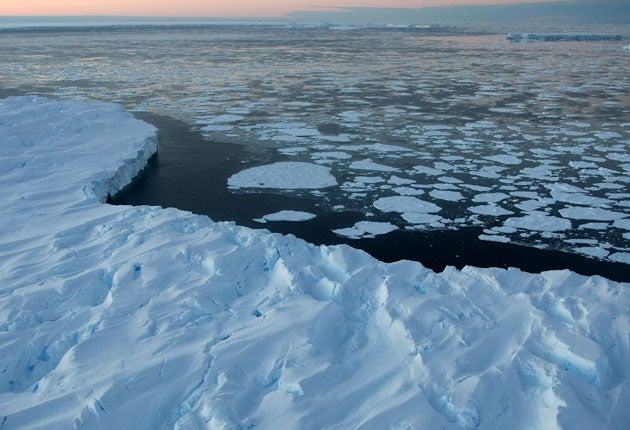Your support helps us to tell the story
From reproductive rights to climate change to Big Tech, The Independent is on the ground when the story is developing. Whether it's investigating the financials of Elon Musk's pro-Trump PAC or producing our latest documentary, 'The A Word', which shines a light on the American women fighting for reproductive rights, we know how important it is to parse out the facts from the messaging.
At such a critical moment in US history, we need reporters on the ground. Your donation allows us to keep sending journalists to speak to both sides of the story.
The Independent is trusted by Americans across the entire political spectrum. And unlike many other quality news outlets, we choose not to lock Americans out of our reporting and analysis with paywalls. We believe quality journalism should be available to everyone, paid for by those who can afford it.
Your support makes all the difference.Ground-level ozone pollution is contributing to hundreds of deaths a year in the UK - and climate change could help make the situation worse, a report from the Royal Society warned today.
The study said that background ozone levels had been growing by 6 per cent a decade since the 1980s, and were now at a level where they were having an impact on health and the environment.
The Royal Society publication warned ozone was a significant greenhouse gas, damaged natural ecosystems and reduced the yields and quality of crops such as wheat and rice.
According to the Royal Society, 1,582 deaths in the UK in 2003 were attributed to ozone's effects on people's respiratory systems, while across Europe some 21,400 deaths a year are caused by the gas.
The Ground Level Ozone in the 21st Century report said the UK figure looked set to increase by at least 50 per cent by 2020 as a result of growing emissions and climate change.
Policies in the EU, the US and Japan have successfully reduced peak regional concentrations of the pollutant, which is formed by reactions between other gases - including greenhouse gases methane and nitrogen oxides - in the presence of sunlight.
But changes in the climate and the use of land, and other human activities such as shipping, are likely to have an impact globally on emissions and the formation of ozone.
In the UK and Europe there are also expected to be more high pollution days, because of climatic changes such as more frequent summer droughts and heat waves which will have associated high ozone episodes, the report warned.
Increased levels of ozone will in turn make climate change worse because it acts as greenhouse gas, trapping heat in the atmosphere, and also reduces the ability of plants to absorb carbon dioxide.
The Royal Society is calling for global action to cut emissions of the gases which create ozone.
Professor David Fowler, chairman of the Royal Society's ground level ozone working group said ozone was a global traveller, with the gas and the pollutants which form it often transported far from their point of origin.
"Until we have a globally co-ordinated approach that addresses the international nature of the problem, national and even regional level controls are unlikely to deliver the kind of reductions that are necessary to protect human health and the environment," he said.
He said most control strategies for ozone were country or region-based, but a global strategy for controlling air pollutants and greenhouse gases was needed.
"The reduction of methane emissions would, for example, contribute both to the reduction of climate change and ozone pollution, and all of the associated ecological and health effects."

Join our commenting forum
Join thought-provoking conversations, follow other Independent readers and see their replies
Comments